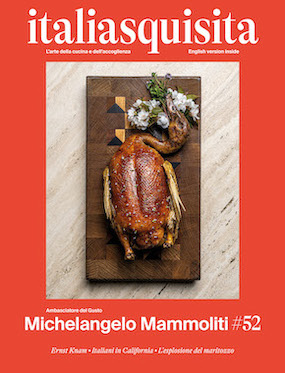Homepage
Cork: the natural solution for storing wine

Starts the communication campaign to promote the cork in Italy
Tuesday, June 8, 2010, in Milan, one of the most picturesque locations in the city, the terrace Martini has launched the campaign - which involves Italy and 12 other countries - promotion of cork that will last 18 months and is promoted by APCOR (association of Portuguese cork producers) and Assoimballaggi/Federlegnoarredo, for Italy. The aim of the campaign is to spread the unique characteristics of this product and its various applications, but also to know the great heritage that the Mediterranean cork forests are to the economy of this basin – covered with about 2.2 million hectares of "cork" that extend over the territories of Italy, Portugal, Spain, North Africa and France - and their value in maintaining the ecosystem. For this reason, a spokesperson for the Campaign is the WWF: the association is engaged in this battle for the protection of biodiversity and the environment against depletion, and desertification of land, creating a group (Global Forest and Trade Network) that seeks to strengthen in the producers as in the consumers the sense of the value of FSC certification, which helps promote proper forest management, which takes into account social benefits and also economic ones.
The cork, which is obtained by extracting the bark of Quercus suber L (during scouring the plant is not destroyed and during its long life regenerate the oak bark for about 16 times), has unique and difficult features to reproduce artificially. The properties of cork are those of being lightweight, flexible, compressible, abrasion-resistant impermeable to liquids and gases, as well as being sound and heat insulator. It is also an environmentally friendly material: 100% natural, recyclable (www.rilegno.it) and reusable. Caps, the main product obtained with the cork, are also recyclable and biodegradable. But this is not the only reason to use natural cork: first, thanks to its water resistance and its ability to retain oxygen, promotes the proper development and conservation of bottled wine. Another property of this material, elasticity, allowing the cap to perform its function of sealing the bottle - there are several, each suitable for different kind of "neck" - but also to return to the original size in a few minutes, once extracted. The only flaw of this material, in the wine industry, is the "smell of cork", caused by contamination by molecules of TCA (trichloroanisole) that impact on the organoleptic properties of wine; but is an obstacle that we pass throw thanks to the advanced research laboratories in manufacturing companies - monitor the material from their extraction from the plant, the production of the cap to the conservation of the wine cellar - with the support of several organizations including the FSC Italy and the E.C. Liège.
So those who choose bottles with corks make a conscious choice, environmentally safe with regard to the conservation of the organoleptic properties of wine!
Published on: 25-07-2010




